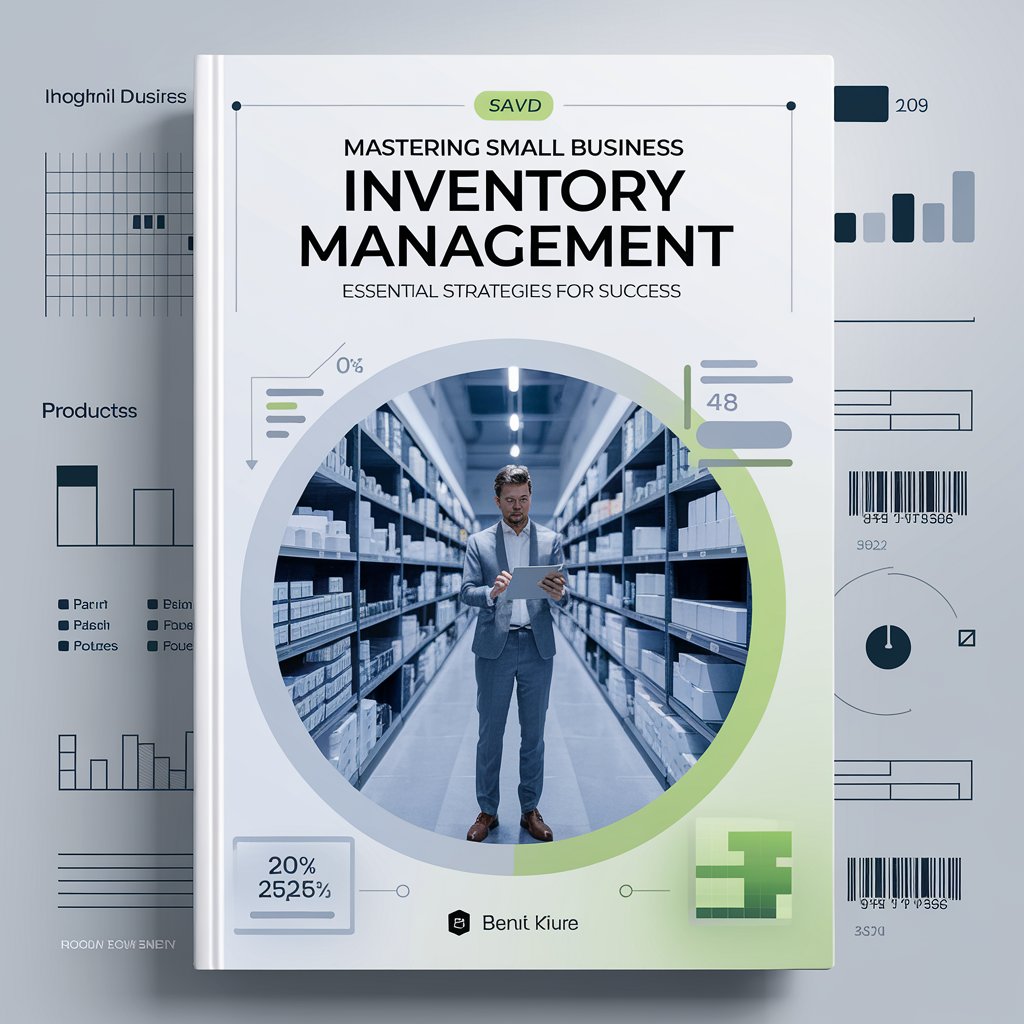Top Inventory Tracking Software for Small Businesses in 2024

Why Inventory Tracking Software is Essential for Small Businesses
Before we dive into the top software options, let’s quickly recap why inventory tracking software is crucial for small businesses:
- Improved Accuracy: Minimize human errors in stock counts and order fulfillment.
- Real-Time Visibility: Get instant updates on stock levels across all sales channels.
- Cost Savings: Reduce overstock and stockouts, optimizing your inventory investment.
- Time Efficiency: Automate manual processes, freeing up time for other business activities.
- Better Decision Making: Access detailed reports and analytics for informed inventory decisions.
Key Features to Look for in Inventory Tracking Software
When evaluating inventory tracking software for your small business, consider the following essential features:
- User-Friendly Interface: Intuitive design for easy adoption by your team.
- Real-Time Syncing: Automatic updates across all sales channels and locations.
- Barcode Scanning: Streamline data entry and improve accuracy.
- Reporting and Analytics: Robust insights into inventory performance and trends.
- Multi-Location Support: Manage inventory across multiple warehouses or stores.
- Integration Capabilities: Seamless connection with your existing tools (e.g., accounting, e-commerce platforms).
- Mobile Access: Manage inventory on-the-go with mobile apps.
- Scalability: Ability to grow with your business needs.
- Customer Support: Reliable assistance when you need it.
Top Inventory Tracking Software for Small Businesses in 2024
1. Linbis Inventory Management Suite
Best for: Small to medium-sized businesses seeking customizable, comprehensive inventory tracking solutions.
Key Features:
- Highly customizable to fit specific business needs
- Real-time multi-channel inventory sync
- Advanced reporting and analytics
- Seamless integration with other logistics operations
- Mobile access for on-the-go management
Pricing: Custom pricing based on business needs; contact for quote
Pros:
- Tailored solutions for unique business requirements
- Scalable to grow with your business
- Strong focus on logistics integration
- Excellent customer support and implementation assistance
Cons:
- May be more comprehensive than needed for very small businesses
- Custom solutions might have a higher initial investment
Linbis stands out in the inventory tracking software market by offering both out-of-the-box solutions and custom development services. This flexibility allows small businesses to get exactly what they need, whether it’s a straightforward inventory tracking system or a complex, integrated logistics solution. With Linbis, you’re not just getting software; you’re getting a partner who understands the unique challenges of small business inventory management.
2. Zoho Inventory
Best for: Small businesses needing an affordable, feature-rich solution.
Key Features:
- Multi-channel selling
- Order and warehouse management
- Integration with other Zoho apps
- Customizable invoices and packing slips
Pricing: Free plan available; paid plans start at $79/month
Pros:
- Competitive pricing
- User-friendly interface
- Extensive integration options
Cons:
- Limited customization in lower-tier plans
- Some features only available in higher-priced plans
3. Cin7
Best for: Growing small businesses with complex inventory needs.
Key Features:
- Advanced inventory planning
- Built-in POS system
- Automation tools
- Extensive third-party integrations
Pricing: Custom pricing; contact for quote
Pros:
- Comprehensive feature set
- Scalable for growing businesses
- Strong automation capabilities
Cons:
- Can be expensive for smaller businesses
- Steeper learning curve
4. Sortly
Best for: Visual-oriented businesses and those needing QR code functionality.
Key Features:
- Visual inventory tracking with photos
- QR code and barcode scanning
- Customizable fields and folders
- Low stock alerts
Pricing: Starting at $29/month; free plan available
Pros:
- Intuitive, visual interface
- Easy to use for non-technical users
- Flexible organization options
Cons:
- Limited advanced features
- May not be suitable for high-volume businesses
5. inFlow Inventory
Best for: Small manufacturers and businesses with both online and offline sales.
Key Features:
- Manufacturing tools
- Offline mode
- Barcode scanning
- Custom fields and reports
Pricing: Starting at $79/month
Pros:
- Strong manufacturing features
- Works offline
- Good balance of features and usability
Cons:
- More expensive than some competitors
- Limited third-party integrations
6. Fishbowl Inventory
Best for: Small to medium-sized businesses needing advanced features and QuickBooks integration.
Key Features:
- Advanced manufacturing tools
- Multi-location tracking
- Integrates with QuickBooks
- Barcode scanning and asset tracking
Pricing: Custom pricing; contact for quote
Pros:
- Comprehensive feature set
- Strong manufacturing capabilities
- Excellent QuickBooks integration
Cons:
- Can be expensive
- Steeper learning curve
7. Veeqo
Best for: E-commerce businesses selling across multiple channels.
Key Features:
- Multi-channel inventory sync
- Automated order fulfillment
- Shipping label creation
- Warehouse management
Pricing: Starting at $156/month
Pros:
- Excellent for multi-channel sellers
- Strong shipping and fulfillment features
- User-friendly interface
Cons:
- Can be expensive for smaller businesses
- Primarily focused on e-commerce
8. Stockpile
Best for: Very small businesses or startups on a tight budget.
Key Features:
- Basic inventory tracking
- Simple interface
- Barcode scanning
- Customizable categories
Pricing: Free
Pros:
- No cost
- Easy to use
- Good for basic inventory needs
Cons:
- Limited features
- No advanced reporting or integrations
How to Choose the Right Inventory Tracking Software
Selecting the best inventory tracking software for your small business depends on several factors:
- Business Size and Complexity: Consider your current needs and potential for growth.
- Budget: Evaluate the cost-benefit ratio of each solution.
- Integration Requirements: Ensure compatibility with your existing systems.
- Scalability: Choose software that can grow with your business.
- Industry-Specific Needs: Look for features tailored to your industry.
- Ease of Use: Consider the learning curve and user-friendliness.
- Support and Training: Evaluate the level of customer support and available resources.
Implementation Tips
Once you’ve chosen your inventory tracking software, follow these tips for successful implementation:
- Plan Carefully: Develop a detailed implementation plan and timeline.
- Clean Your Data: Ensure your existing inventory data is accurate before migration.
- Train Your Team: Provide comprehensive training to all users.
- Start Small: Consider a phased rollout, starting with a single department or location.
- Monitor and Adjust: Regularly review the system’s performance and make necessary adjustments.

The Future of Inventory Tracking Software
As technology continues to evolve, we can expect to see some exciting developments in inventory tracking software:
- AI-Powered Forecasting: More accurate demand prediction using artificial intelligence.
- IoT Integration: Real-time tracking using smart shelves and RFID tags.
- Augmented Reality: AR-assisted picking and packing for improved efficiency.
- Blockchain Technology: Enhanced traceability and security in supply chain management.
- Advanced Analytics: Deeper insights into inventory performance and customer behavior.
Conclusion
Choosing the right inventory tracking software can significantly impact the efficiency and profitability of your small business. The options presented in this guide represent some of the best solutions available in 2024, each with its own strengths and ideal use cases. Remember to carefully evaluate your business needs, budget, and growth plans when making your decision.
Effective inventory management goes beyond just having the right software – it requires consistent effort in maintaining accurate data, training staff, and continuously refining processes. With the right tool and approach, you can transform your inventory management from a challenging task into a strategic advantage for your small business.
How Linbis Can Help
While the software options listed above offer valuable solutions for many small businesses, some companies require more specialized or customized inventory tracking systems. This is where Linbis comes in. As experts in logistics software development, Linbis offers both out-of-the-box solutions and custom development services tailored to the unique needs of small businesses.
Whether you need a comprehensive inventory tracking system integrated with other aspects of your operations, or a specialized solution for your niche business, Linbis has the expertise to deliver. Their team understands the challenges faced by small businesses and can provide solutions that are not only powerful but also user-friendly and scalable.
By partnering with Linbis, you can ensure that your inventory tracking system is perfectly aligned with your business processes, helping you stay competitive in today’s dynamic market. While Linbis provides the technological foundation, remember that successful inventory management also relies on your commitment to implementing best practices and continuously refining your processes.
